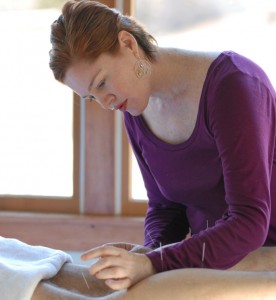 Article from January 2009 issue of Westview Magazine
Article from January 2009 issue of Westview Magazine
On July 26th, 1971 James Reston authored an article in the New York Times that introduced most Americans to acupuncture. He wrote it from his hospital room in Beijing after undergoing an emergency appendectomy while covering Nixon’s historic trip there.
He told his readers that contrary to what they might think, it was “hardly a journalistic trick” to get “sliced open in the middle of the night” in order “to write about the benefits of acupuncture anesthesia”. Mr. Reston wrote about how three long needles placed below the elbow and knee that relieved the post-op abdominal pain. In sharing his experience he introduced our country to one of the oldest, most commonly used medical procedures in the world.
My journey to becoming an acupuncturist was unexpected and circuitous after graduating from college with a degree in Biology. I had always been interested in medicine but it was not until the AIDS crisis in the eighties that I started to think seriously about it.
I read a description of a class that taught how to use slow and graceful movement to balance the circulation in the body. It went on to say that it was based on Chinese medicine and was used in hospitals in China to treat disease. I signed up for the class.
After six months of practice and guidance from my teachers the wheezing I experienced in my lungs every night disappeared. I started to study Chinese medicine informally and eventually was accepted into one of the oldest acupuncture and oriental medicine schools in our country (which happens to be located right here in our neighborhood).
Little did I know how rigorous the training and study would be. After three full years of studying eastern medical theory, observing masters in ‘grand rounds’, working on each other and interning in a high volume clinic treating everything from addiction to psoriasis to back pain, it was time to take the National Boards which included not only three modules on eastern medicine but one on western biomedicine as well. It was worth it.
Three months after graduating, through a graduate externship program with my school, I started a successful full body acupuncture program at a Western Medical clinic in Chelsea. Ninety percent of my patients were treated for HIV and AIDS related disorders. Some needed relief from side effects of medication, others, especially newly diagnosed men and women, needed support for treatment of anxiety and depression.
Today I have a private practice in Soho where the range of issues I treat continues to be diverse. Something that is especially gratifying for me is treating people with tight muscles in the shoulders, back and neck. Acupuncture can “disperse the excess” in the tight muscles and “tonify the deficiency” that might be causing it. No need to understand the theories behind it. The feeling of having the weight lifted off your shoulders when you leave the office will be enough to convince you that acupuncture works!







Leave a Reply